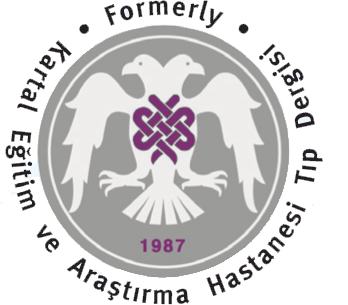The Effects of Obesity on Cognitive Functions in Adolescents
Ayşegül Keskin Söylemez1, Mustafa Özçetin2, Ali Karayağmurlu3, İnci Zaim Gokbay4, Yakup Çağ51Pediatric Health and Diseases Clinic, Private Medikum Hospital, Antalya2Department of Family Health, Istanbul University, Institute of Child Health, Istanbul, Türkiye
3Department of Child and Adolescent Psychiatry, Istanbul University, Istanbul Faculty of Medicine, Istanbul, Türkiye
4Department of Informatics, Istanbul University, Istanbul, Türkiye
5Department of Pediatrics, University of Health Sciences, Kartal Dr. Lütfi Kırdar Training and Research Hospital, Istanbul, Türkiye
INTRODUCTION: Obesity continues to be an important problem in childhood as well as in adults worldwide. It is known that obesity experienced in childhood has effects on emotional development besides physical effects. In this study, it was aimed to investigate the effects of obesity on cognitive functions in adolescents, which is the most important step of the transition to adulthood.
METHODS: Obese and non-obese adolescents with no other known health problems were included in the study. In order to evaluate cognitive functions in obese patients and the control group, tests evaluating auditory and visual memory and attention were applied.
RESULTS: As a result of the assessments made, a statistically significant difference was found in terms of visual memory scores and verbal fluency total and sub-dimension total mean scores. No statistically significant difference in terms of WISC-R verbal, performance, and total score means applied to the participants was found.
DISCUSSION AND CONCLUSION: In our study, it was observed that obesity may adversely affect cognitive functions in childhood in some areas. It may be necessary to determine the factors that negatively affect cognitive functions in obese children and to take supportive interventions and measures.
Keywords: Adolescent, cognitive functions, obesity.
Ergenlerde Obezitenin Bilişsel İşlevler Üzerine Etkileri
Ayşegül Keskin Söylemez1, Mustafa Özçetin2, Ali Karayağmurlu3, İnci Zaim Gokbay4, Yakup Çağ512
3
4
5
GİRİŞ ve AMAÇ: Obezite, dünya çapında yetişkinlerde olduğu kadar çocukluk çağında da önemli bir sorun olmaya devam etmektedir. Çocukluk çağında yaşanan obezitenin fiziksel etkilerinin yanı sıra duygusal gelişim üzerinde de etkileri olduğu bilinmektedir. Bu çalışmanın amacı, yetişkinliğe geçişin en önemli basamağı olan adölesanlarda obezitenin bilişsel işlevler üzerindeki etkilerini araştırmaktır.
YÖNTEM ve GEREÇLER: Çalışmaya herhangi sağlık sorunu olmayan obez ve obez olmayan olarak sınıflandırılan ergenler dahil edildi. Obez ve obez olmayan grupta bilişsel işlevlerin değerlendirilmesi için işitsel ve görsel bellek ve dikkat testleri uygulandı.
BULGULAR: Obez ve obez olmayan grup aarsında görsel bellek puanları ile sözel akıcılık toplam ve alt boyut toplam puan ortalamaları arasında istatistiksel olarak anlamlı farklar saptandı. Katılımcılara uygulanan WISC-R sözel, performans ve toplam puan ortalamaları açısından anlamlı bir fark bulunmadı.
TARTIŞMA ve SONUÇ: Çalışmamdan elde edilen sonuçlar obezitenin bazı alanlarda çocukluk çağında bilişsel işlevleri olumsuz etkileyebileceğini ortaya koymaktadır. Bu nedenle, obez çocuklarda bilişsel işlevleri olumsuz etkileyen faktörleri, önleyici müdahaleleri ve önlemleri belirlemek için tahmin ve önleme temelli sistemlerin kullanılması gerekli olabilir.
Anahtar Kelimeler: Bilişsel fonksiyonlar, ergen, obezite.
Manuscript Language: English




















